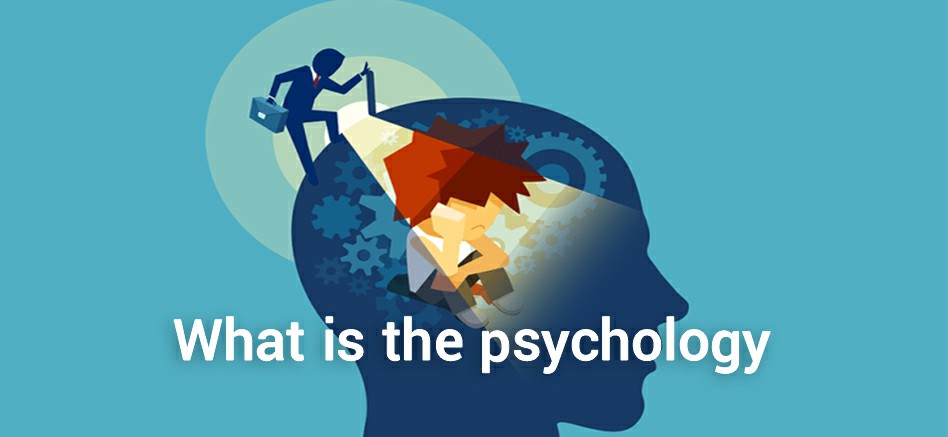
What is the psychology
Psychology is the science of behavior and mind, which combines all aspects of thought as well as conscious and unconscious experience. It is an academic training and sociology that seeks to understand individuals and groups through general principles and special case research.
The principles
Mind and brain
Psychology describes our mind, our behavior, and our social relationships. Ancient psychology is primarily dedicated to describing human experience and behavior. Since 1980, psychology has explored the relationship between the brain, the brain and the nervous system. but,
It is not clear whether cognition determines the state of the brain or the brain. Or is cognition a complex case with nothing to do with the nervous system?
To clarify this, it is necessary to define robustness and brain function.
It has been widely used in practice, especially in relation to artificial intelligence, neuropsychology, and cognitive neuropsychology.
The group of thoughts
Thoughts are described as different forms and it helps to explain the majority of human behavior. The popularity of this fading over time. Some psychologists get involved with certain thoughts and then reject others. But these are helpful to understand the mind, and these theories are not common. “Using Tinbergen’s 4 questions, you can create a model for use or a table for psychology research. (Including anthropology and man)
Theoretical and practical applications of psychology are increasingly common to understand brain function.
The Beginning of Scientific Psychology
Although studies in psychology began in 1879 as an independent research subject, psychological research has been described in the 1021 “Alhasnah” publications. Wilhelm Vanditt, better known as the father of psychology, founded a separate laboratory for psychological research at the University of Leipzig in Germany. Therefore, 1879 is considered the birthday of psychology.
The book Principles of Psychology, published by the American philosopher William James, provides the basis for problems with psychology. In addition, Hermann Ebinhans (1850 – 1909), the founder of cognitive research, and Russian psychologist Ivan Pavlov (1849 – 1936) contributed to scientific psychology.
In 1896, Sigmund Freud, trained as an Australian neurosurgeon, presented psychoanalysis as a form of psychotherapy. However, he had no systematic training in experimental psychology. This understanding depends largely on his understanding, self-examination and diagnostic methods. His main focus is on Armed Conflict Resolution, Depression and Psychiatry. His theories became well-known for his use of elements such as sexuality, subjugation, and the unconscious mind as the general features of the development of psychology. At the time, Freud was the catalyst for public discussion of what were considered taboo items. However, Carl Popper argued that Freud’s theory of psychoanalysis was incapable of being tested.
Freud’s theory is not useful for modern psychology. His followers, however, would refer to Freud as the new Freud, although he endorsed Freud’s ideas and slightly changed his theories of psychoanalysis.
Research methods
German psychologist Wilhelm Maximilian Wundt may be the father of experimental psychology. Psychological research produces and evaluates analytical assumptions of psychological phenomena. They make extensive use of behavioral science standards and quantitative statistics. If research ethics and the development of research are endorsed, future research will rely on its core principles. Psychology uses scientific knowledge in other areas to explain and understand psychological phenomena. Behavioral research in qualitative psychology research, action research on behavioral patterns. Extensive observation techniques such as exploratory statistics, interviewing participants and gathering great information. This is not possible in traditional research. Behavior and history can help advance research in human psychology.
Examining the various aspects of psychology is one of the core areas of modern psychology. It mainly uses psychometric and numerical methods, including standardized research methods, as well as the opportunity or research methodology.
Although psychologists use research and psychological theories to advance psychological understanding of a particular field, other psychologists use this knowledge simultaneously and for practical applications. However, because these two approaches are intertwined, many psychologists have to work in the fields of research and applied psychology in their careers.
Clinical psychology is one aspect of psychology. Psychotherapists use research and research methods to assist patients in their clinical work, and to improve their knowledge in dealing with patients as professionals.
In practice, this medical discipline requires specialized training and specialization, so the Psychology Conference usually establishes a Governing Committee to manage work and meet these needs. Similarly, creating a university psychology degree can offer students and students a wide range of subjects. In addition, since psychiatrists treat patients, they must be licensed by a government agency.